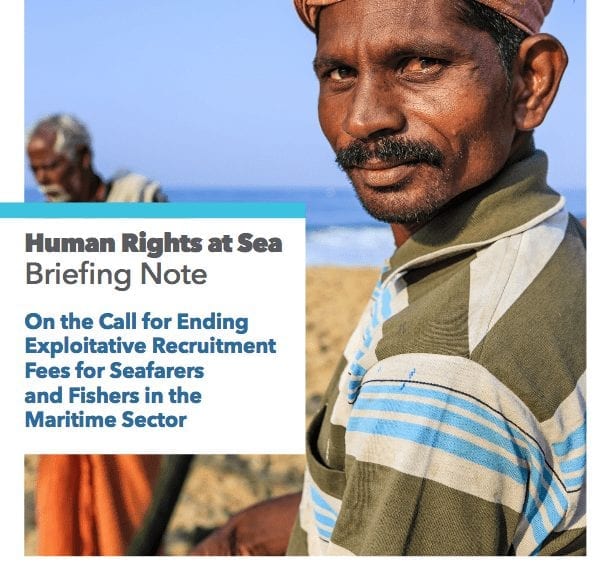
Ending Exploitative Recruitment Fees for Seafarers and Fishers in the Maritime Sector
Recruitment fees and related costs charged to individuals seeking work in the commercial shipping and fishing industries are unacceptable, and in many jurisdictions, unlawful.
From evidence gathered by Human Rights at Sea, workers and especially migrant workers are almost always made to pay for the opportunity of work either directly or indirectly by unscrupulous third-party facilitators operating under the banner of charging ‘standard service costs’ which in reality are often unreasonable at least, and often unlawful at best.
These misleading and exploitative recruitment practices by some labor recruiters and overseas employment agencies are a continued blight on raising social welfare and human rights standards in the global maritime sector.
Fees charged are invariably excessive and underpin an exploitative service industry often bringing life-long debt to workers, their dependents and extended families in the form of debt-bondage. There is also a lack of transparency throughout this human supply chain. Such abusive and exploitative practices must therefore be continuously publicly challenged and ultimately curtailed, if not stopped throughout the global maritime sector.
Recruitment fees and related costs should, in the first instance, be borne by the employers and later shared by the buyers of their respective services and products. This is the basis for voluntary guidance such as the Institute of Human Rights at Business (IHRB) ‘Employer Pays Principle’ reflecting Principle 1 of the IHRB Dhaka Principles for Migration with Dignity. The Employer Pays Principle being a commitment to ensure that no worker should pay for a job. Meantime, for an employer such costs will invariably fall as essential business disbursement costs which should be lawfully offset against commercial business tax.
In short, workers should never incur debt-bondage to maintain maritime supply chains when such fees are essential business costs that should be accepted and absorbed by employers as part of any lawful and morally-upright business model.
Read the full briefing here.
